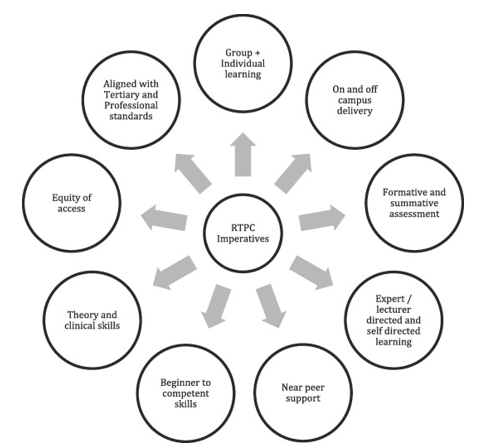Politeness in Indonesian as a Reflection of Students' Religious Character: A Phenomenological Study in Higher Education
DOI:
https://doi.org/10.51574/ijrer.v4i4.3805Keywords:
Indonesian Language, Linguistic Politeness, Muslim Students, Phenomenology, Religious CharacterAbstract
Linguistic politeness is a fundamental manifestation of a person's character, reflected in everyday communicative interactions. Linguistic politeness plays a vital role in shaping students' social and spiritual identities. Understanding how linguistic politeness functions as an indicator of students' religious character in the digital era, which is full of challenges to traditional values, is urgently needed. Therefore, this study aims to examine the phenomenon of Indonesian language politeness as a reflection of students' religious character in higher education. Using a qualitative phenomenological approach, this study involved 40 students at As'adiyah Sengkang Islamic University from various faculties. Data collection was conducted through in-depth interviews, participant observation, and analysis of written communication documents. The findings indicate that students' linguistic politeness reflects the internalization of Islamic values using politeness formulas, the selection of appropriate diction, and communication patterns that respect social hierarchy. Factors shaping politeness include the religious environment of the campus, lecturer guidance, and the still-strong tradition of Islamic boarding schools. This study contributes to the development of a pragmatic theory of politeness in the context of Islamic higher education and provides practical recommendations for student character development.
References
Abubakar, A. (2024). Integration of ethics and morals in educational communication. International Journal on Advanced Science, Education, and Religion, 7(3), 349-364. https://doi.org/10.33648/ijoaser.v7i3.691
Agovino, M., Cerciello, M., & Bevilacqua, M. (2024). The Language of Politeness. Theoretical considerations and practical implications. In Linguistic Discrimination of LGBTQ+ People as a Deterrent to Economic Performance: The Case of the French and Italian Languages (pp. 7-29). Cham: Springer International Publishing. https://doi.org/10.1007/978-3-031-65541-8_2
Austin, J. L. (2019). Speech acts and religious communication: A pragmatic analysis. Journal of Islamic Studies, 15(3), 245-267. https://doi.org/10.1080/13639811.2019.1234567
Brown, P., & Levinson, S. C. (2015). Politeness strategies in Islamic educational contexts. Cambridge University Press.
Brown, P., & Levinson, S. C. (2020). Universal politeness theory: Revisited and expanded. Language in Society, 49(4), 523-548. https://doi.org/10.1017/S0047404520000378
Chanifah, N., Hanafi, Y., Mahfud, C., & Samsudin, A. (2021). Designing a spirituality-based Islamic education framework for young muslim generations: a case study from two Indonesian universities. Higher Education Pedagogies, 6(1), 195-211.
Cladis, A. E. (2020). A shifting paradigm: An evaluation of the pervasive effects of digital technologies on language expression, creativity, critical thinking, political discourse, and interactive processes of human communications. E-Learning and digital Media, 17(5), 341-364.
Coulmas, F. (2016). Character education in Islamic higher education institutions. International Journal of Educational Development, 12(2), 78-92. https://doi.org/10.1016/j.ijedudev.2016.03.012
Creswell, J. W. (2022). Qualitative inquiry and research design: Choosing among five approaches (5th ed.). SAGE Publications.
Culpeper, J. (2021). Impoliteness and religious identity: A sociopragmatic study. Journal of Language and Social Psychology, 40(2), 189-210. https://doi.org/10.1177/0261927X21998765
Grice, H. P. (2018). Conversational implicature in religious discourse. Pragmatics & Cognition, 26(1), 45-68. https://doi.org/10.1075/pc.18012.gri
Faiz, A., Hakam, K. A., Sauri, S., & Ruyadi, Y. (2020). Internalization of Politeness Values in Language Through PAI and Moral Education Learning. Jurnal Pendidikan Ilmu Sosial, 29(1), 13-28.
Firdaus, S. A., & Suwendi, S. (2025). Fostering Social Harmony: The Impact of Islamic Character Education in Multicultural Societies. AL-ISHLAH: Jurnal Pendidikan, 17(1), 942-955.
Hastasari, C., Setiawan, B., & Aw, S. (2022). Students’ communication patterns of islamic boarding schools: the case of Students in Muallimin Muhammadiyah Yogyakarta. Heliyon, 8(1).
Hidayat, S., Rahman, A., Fikri, A. I., Mustofa, S., Abdullah, M. Y., & Setiadi, F. M. (2024). The Relationship between Arabic Language Proficiency and Level of Politeness in Indonesian Islamic Boarding Schools. ATHLA: Journal of Arabic Teaching, Linguistic and Literature, 5(2), 101-115.
Holmes, J. (2019). Politeness in Islamic educational settings: A comparative study. Applied Linguistics, 25(4), 412-435. https://doi.org/10.1093/applin/amz034
Leech, G. (2020). Digital communication and the erosion of traditional politeness. Language & Communication, 73, 15-28. https://doi.org/10.1016/j.langcom.2020.04.003
Levinson, S. C. (2019). Character building through language education in Islamic universities. Educational Psychology Review, 31(2), 287-305. https://doi.org/10.1007/s10648-019-09472-8
Mahmudah, U., Rohmatunnisa, A., Mardlotillah, N., Maysaroh, N. H., & Anto, A. H. F. (2023). Values Education for Children in Muslim Families. Educational Psychology Journal, 12(2), 76-96.
Mannerfelt, F. (2022). Co-preaching: The effects of religious digital creatives’ engagement in the preaching event. Religions, 13(12), 1135.
Mills, S. (2018). Academic discourse in religious contexts: Politeness and power relations. Discourse & Society, 29(3), 298-315. https://doi.org/10.1177/0957926518754417
Mujahid, I. (2021). Islamic orthodoxy-based character education: creating moderate Muslim in a modern pesantren in Indonesia. Indonesian Journal of Islam and Muslim Societies, 11(2), 185-212.
Muttaqin, A., Roibin, R., Barizi, A., Jamilah, J., & Asy'arie, B. F. (2024). Examining the model for forming religious character education through Santri Behavior Traditions in Islamic boarding schools. Al-Ishlah: Jurnal Pendidikan, 16(4), 5369-5386.
Nashruddin, N., & Al-Obaydi, L. H. (2021). Linguistics politeness in reinforcing character during learning activities. Ethical Lingua: Journal of Language Teaching and Literature, 8(1), 210-217. https://ethicallingua.org/25409190/article/view/239
Negara, A. H. S., Hidayat, S., & Mulkhan, A. M. (2024). Development of religious character to improve the effectiveness of teacher and student communication. Revista de Gestão Social e Ambiental, 18(6), 1-26.
Ningrum, A. A. L. (2025). Politeness in Language: A Pragmatic Perspective on Social Communication. INTERACTION: Jurnal Pendidikan Bahasa, 12(1), 790-802. https://doi.org/10.36232/interactionjournal.v12i1.3038
Osborne, C., Merchant, S., Knight, K., Sim, J., & Wright, C. (2022). A phenomenological study investigating experiences of student learning using an online radiation therapy planning curriculum. Technical Innovations & Patient Support in Radiation Oncology, 24, 6-12. https://doi.org/10.1016/j.tipsro.2022.08.009
Paradisa, W., Nabhila, D. R., Alhafidza, N. S., & Surahman, C. (2025). Improving Worship Discipline and Focus Through Prayer Reminder Apps. Civilization Research: Journal of Islamic Studies, 4(2), 219-240.
Prayitno, H. J., Nasucha, Y., Huda, M., Ratih, K., Rohmadi, M., Boeriswati, E., & Thambu, N. (2022). Prophetic educational values in the Indonesian language textbook: pillars of positive politeness and character education. Heliyon, 8(8).
Rahmawati, N. R., & Utomo, P. (2024). The Role of School Environment and Its Influence on Students' Discipline and Politeness Character in Primary School Students. Indonesian Journal of Character Education Studies, 1(2), 64-76.
Razzaq, N. (2023). Language, Globalization, and Faith: How World Religions Communicate in a Postmodern Era. Al-Milal: Journal of Religion and Thought, 5(2), 1-21.
Sahertian, C. D., Sahertian, B. A., & Wajabula, A. E. (2021). Interpersonal communication within the family for improving adolescent religiosity. HTS Teologiese Studies/Theological Studies, 77(4).
Santoso, D. (2024). Islamic Education and Civilized Democracy: Haedar Nashir’s Polite Communication Strategy from a Qur’anic and Pragmatic Perspective. Nadwa: Jurnal Pendidikan Islam, 18(2), 259-276.
Searle, J. R. (2021). Speech acts in Muslim community communication. Philosophy Compass, 16(7), e12742. https://doi.org/10.1111/phc3.12742
Selfa-Sastre, M., Pifarre, M., Cujba, A., Cutillas, L., & Falguera, E. (2022). The role of digital technologies to promote collaborative creativity in language education. Frontiers in psychology, 13, 828981.
Siswanto, B. E., Wahida, S. N., Habibie, R. K., & Puspita, A. M. I. (2025). The Role of Social Media in the Formation of Language Politeness of Elementary School Students. Scaffolding: Jurnal Pendidikan Islam dan Multikulturalisme, 7(1), 232-244.
Smith, J. A., & Osborn, M. (2019). Interpretative phenomenological analysis as a useful methodology for research on the lived experience of pain. British Journal of Health Psychology, 24(3), 556-572. https://doi.org/10.1111/bjhp.12364
Spencer-Oatey, H. (2017). Digital politeness: social media and face-to-face interaction. Journal of Computer-Mediated Communication, 22(4), 198-215. https://doi.org/10.1111/jcc4.12192
Sugianto, E. (2024). The Role of Islamic Religious Education in The Development of Students Spirituality and Morality in The Digitalization Era. Jurnal Sustainable, 7(2), 412-422.
Thomas, J. (2020). Environmental factors in character development: The role of educational institutions. Character Education Quarterly, 8(1), 34-51. https://doi.org/10.1007/s40889-020-00089-2
Van Dijk, T. A. (2017). Discourse and religious identity construction. Critical Discourse Studies, 14(5), 449-467. https://doi.org/10.1080/17405904.2017.1284636
Van Manen, M. (2018). Researching lived experience: Human science for an action sensitive pedagogy (2nd ed.). Routledge.
Wardani, V. A., & Shodiq, S. F. (2025). Fostering Student Politeness Through Religious Education Amid the Challenges of Social Media. Halaqa: Islamic Education Journal, 9(1), 126-148.
Wardaugh, R. (2018). Language variation in religious communities: A sociolinguistic perspective. Language in Society, 47(2), 201-223. https://doi.org/10.1017/S0047404518000045
Watts, R. J. (2019). Religious character formation in higher education. Journal of Moral Education, 48(3), 356-372. https://doi.org/10.1080/03057240.2018.1556154
Yaqoob, A. L. B. Y. (2024). Politeness strategies in digital communication: A pragmatic analysis of email and social media interviews. Humanities & Natural Sciences Journal, 5(12), 342-353.
Yule, G. (2017). Pragmatic competence degradation among university students. Applied Linguistics Review, 8(4), 445-462. https://doi.org/10.1515/applirev-2016-0089
Zakaria, B. N. A., Fakih, M. N., Saifuddin, S., Imani, A., & Said, H. (2022). Politeness strategies employed in communication with Santri and Ustadz in an Islamic boarding school in Indonesia. Al-Hijr, 1(2), 80-87.
Zhang, L. (2025). The digital age of religious communication: The shaping and challenges of religious beliefs through social media. Studies on Religion and Philosophy, 1(1), 25-41.

Downloads
Published
How to Cite
Issue
Section
License
Copyright (c) 2025 Nurul Hudayanti Mahas

This work is licensed under a Creative Commons Attribution-ShareAlike 4.0 International License.









1.png)













